BY Frank F Islam
U.S. President Donald Trump created astir when he told reporters in the presence of Prime Minister Imran Khan during his recent visit to Washington, D.C. that Prime Minister Modi had asked him to mediate the decades long Kashmir dispute between India and Pakistan. Upon learning of Trump’s assertion India immediately issued an official denial that Modi had made such a request.
As is often the case, President Trump claims were questionable. Even more questionable is Trump’s competency to play the role of mediator and whether the bilateral relationships between United States and Pakistan and the United States and India are on solid enough footing for it to act as a trusted mediator on Kashmir.
“The bottom line is that while Khan’s trip to Washington may have been full of smiles and good vibes, and it may have even solidified U.S.-Pakistan cooperation in Afghanistan, it shouldn’t be mistaken for a reset in troubled ties. This newfound comity can’t mask the reality that U.S.-Pakistan relations are still in need of major repair.”
The United States relationship with India is not much better. Things were progressing relatively nicely through most of 2018. Then, India got into a tit-for-tat trade tariff battle. That contentiousness appeared to being addressed and the bilateral ties strengthened after Trump met with Modi at the recent G-20 and his administrative representatives met with Indian representatives in India. Then, Trump threw Modi under the bus and currently all bets are off.
Khan and Modi have each been referred to pejoratively as a “strongman Prime Minister.” In this instance, two strong men are needed. Strong men who have the capacity, capability and responsibility not to wage war but to promote peace.
That’s the bad news regarding mediation. The good news is that news doesn’t matter because the two most important people in terms of moving Pakistan and India forward toward peace on Kashmir are Prime Ministers Khan and Modi. And, they have both indicated some desire to cooperate in doing so.
After Modi was re-elected Prime Minister of India, Khan sent him a congratulatory letter. In that letter, he offered to engage in a dialogue to try to achieve a resolution of all outstanding problems between the two nations including Kashmir. He added that by talking and deciding how to collaborate they could help their countries overcome poverty and promote regional development.
Modi replied in a letter, that India seeks normal and cooperative relations with Pakistan. He stressed, however, for that to happen there is a need to create “an environment of trust, free of terror, violence and hostility.”
This might be viewed as a mere exchange of political pleasantries or as the basis for starting a dialogue. In my mind and in the best interests of Pakistan and India, it should be the latter. There should be no unrealistic expectations, however, regarding the speed and results of the problem-solving process.
Fifteen years ago, the International Crisis Group, an independent nonprofit committed to helping prevent and resolve deadly conflicts, issued a report in which it said ” There needs to be recognition that the process of normalization and confidence building must precede attempts to reach a comprehensive peace settlement on Kashmir even as it accompanies bilateral discussions on aspects of the dispute. The Group recommended that “The first steps should be to lower tensions and establish closer and sustained links in less controversial areas. The process can then progress to more problematic issues later.”
As everyone knows, the Kashmir conflict today remains a “more problematic issue.” This conflict has gone on for over seven decades with three wars and the loss of numerous lives on both sides. The military exchange at the beginning of this year made it seem that a war might be imminent. Over the past several months, though things have quieted down and there are no ongoing skirmishes.
Now, with Kashmir front and center again and thoughts of peace in the air, it is a good time to start discussions. As noted, those talks and the problem-solving must be progressive. Start with the small stuff and move on to the larger issues. To the extent possible, do so privately and avoid the glare of the media.
There are countless reasons for both India and Pakistan to join in this problem-solving endeavour. The pre-eminent one is to avoid the expenditure of billions of dollars and the loss of numerous lives and substantial treasure in a war that would truly have no winner.
Those dollars and that manpower could be used to address the enormous economic development needs of both countries. Achieving a state of peace, would also enable Pakistan and India to assume the leadership role they should be playing in the South Asian Association for Regional Cooperation (SAARC) to bring stability to this region.
The total population of the eight members of SAARC is over 1.7 billion. Data shows that many of those people live in poverty, poor health and are malnourished. Some of this can be attributed to the conflict that has persisted in the region for generations. Eliminating that conflict would create an environment for changing those conditions.
Achieving peace in Kashmir and then using that peace to benefit India, Pakistan and the South Asia region might seem like a tall order – an impossible task. That might not be the case for two strong leaders such Prime Minister Khan and Prime Minister Modi. Khan and Modi have each been referred to pejoratively as a “strongman Prime Minister.” In this instance, two strong men are needed. Strong men who have the capacity, capability and responsibility not to wage war but to promote peace.
Both prime ministers are well connected to the power brokers in their countries and have broad popular backing. The question in 2019 is can they use that support to do the unexpected?
Can they as leaders take this strength in conjunction with their respective establishments and use it to advocate for giving peace a chance in Kashmir? As the old saying goes, “A journey of a thousand miles begins with a single step”.
If Modi and Khan can take that step, the journey to peace and prosperity for Pakistan, India and this region will begin. There is no guarantee how that journey will end, what route it will follow, or how long it will take. Nonetheless, the time is right, that step should be taken now.
The author is an Entrepreneur, Civic Leader, and Thought Leader based in Washington DC. The views expressed here are personal

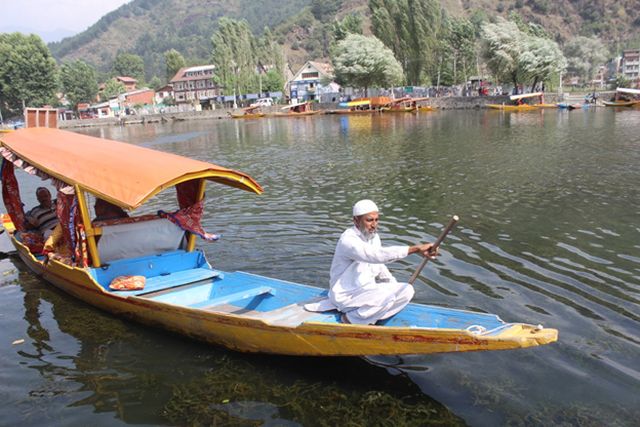
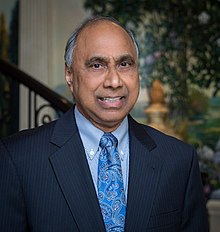
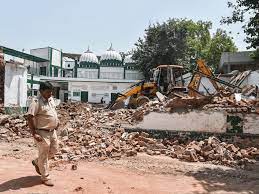

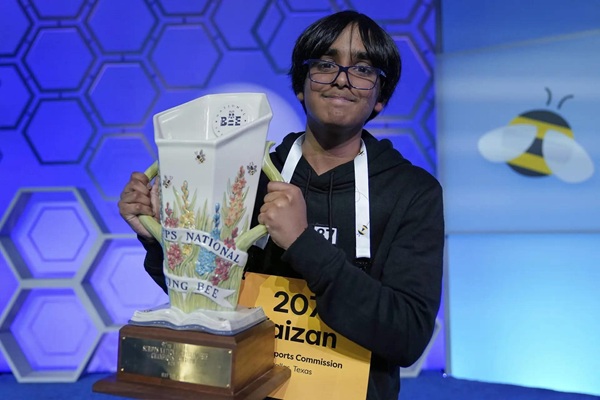
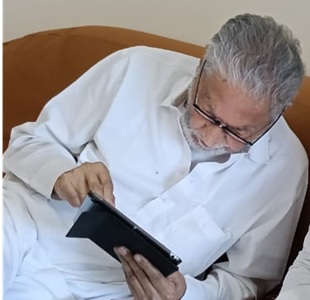
0 Comments